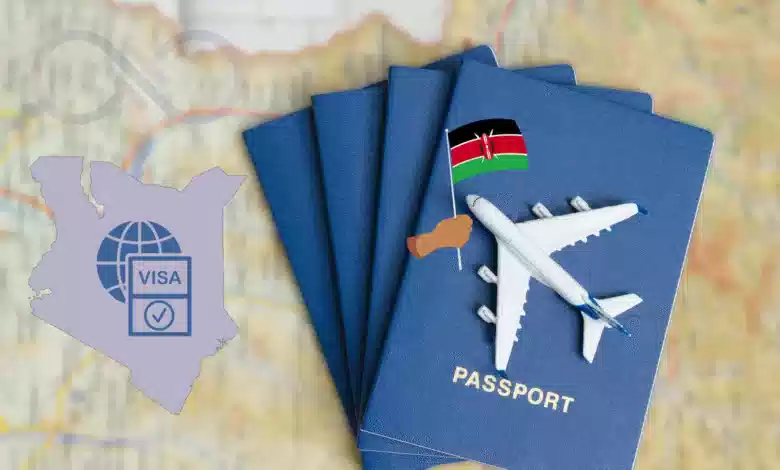
On January 21, 2025, Kenya’s Cabinet, chaired by President William Ruto, approved transformative changes to the country’s Electronic Travel Authorization (eTA) visa policy. These changes are designed to enhance regional integration, ease travel for African nationals, and boost Kenya’s position as a leading tourism and business hub. The resolution eliminates the requirement for eTA pre-authorization for most African travelers, addressing criticisms of the earlier system.
Under the revised policy:
- eTA Pre-Authorization Eliminated: Citizens of nearly all African countries, except Somalia and Libya due to security concerns, can now enter Kenya without requiring prior eTA approval.
- Extended Stay Periods: African nationals can stay in Kenya for up to two months without additional formalities. East African Community (EAC) citizens retain their six-month stay privilege under free movement protocols.
- Enhanced Processing Options: Expedited eTA processing for non-African travelers will provide instant approvals, with a maximum processing time capped at 72 hours.
- Advanced Passenger Information Systems: New systems will bolster security and streamline entry processes at Kenyan borders, improving both traveler experience and national safety.
These changes reflect Kenya’s commitment to fostering regional integration, enhancing its tourism appeal, and addressing operational inefficiencies in the previous eTA system.
Challenges That Prompted the Policy Shift
The introduction of the eTA system in January 2024 was initially intended to simplify travel, but it quickly became a source of frustration for travelers and stakeholders. Below are the main challenges that led to the recent resolution:
1. Miscommunication of “Visa-Free” Status
When President Ruto announced a “visa-free” policy for Kenya in 2023, many interpreted it to mean seamless travel. However, the mandatory eTA system—which included fees, documentation requirements, and prior approvals—was perceived as a “visa under another name.”
This misunderstanding created confusion among travelers, particularly those from African countries that had previously enjoyed visa-free access to Kenya.
2. Increased Costs for Travelers
The $30 fee for an eTA, while lower than the previous $50 visa fee some countries paid, added an unexpected expense for nationals of countries that were previously exempt. This additional cost deterred budget-conscious tourists and business travelers.
3. Lengthy Processing Times
Though eTA applications were promised to be processed within three days, many travelers experienced delays, particularly during peak travel seasons. These delays disrupted travel plans and caused inconvenience for those traveling on short notice.
4. Complex Documentation Requirements
Applicants were required to submit detailed documents, including flight itineraries, accommodation bookings, and in some cases, financial proof. This was a cumbersome process for travelers, particularly those planning flexible or emergency travel.
5. Operational Inefficiencies
Technical glitches on the eTA application platform and inadequate training for airline staff led to boarding denials and confusion at airports. These issues tarnished Kenya’s image as a welcoming destination.
6. Criticism of Reciprocity
The introduction of the eTA system prompted concerns about reciprocal measures from other African nations. Countries whose citizens faced new restrictions could impose similar requirements on Kenyan travelers, potentially affecting Kenya’s global mobility and regional relationships.
7. Tourism and Business Impact
The cumbersome eTA process discouraged tourists and business visitors, contradicting the government’s goal of promoting Kenya as a premier destination. The Africa Visa Openness Index ranked Kenya 46th out of 54 African nations in 2024, highlighting the negative perception of the system.
The Road Ahead: A Vision for Open Borders
The recent resolution marks a significant pivot in Kenya’s approach to travel and tourism. By addressing the flaws in the eTA system, the government aims to:
- Enhance Regional Integration: The relaxed rules align with the African Union’s Agenda 2063 and its vision of seamless movement across the continent.
- Boost Tourism Revenue: Kenya’s tourism industry—a vital contributor to the national economy—is expected to benefit from increased visitor numbers.
- Improve Kenya’s Global Image: Simplifying entry requirements positions Kenya as a traveler-friendly destination, enhancing its competitiveness in the global tourism market.
- Strengthen Security Measures: The integration of advanced passenger information systems ensures that security is not compromised despite the relaxed entry rules.
Conclusion
Kenya’s decision to simplify its eTA visa process and open its borders to most African travelers is a bold and strategic move. By learning from the challenges of the previous system, the country has taken steps to enhance accessibility, promote regional unity, and strengthen its position as a top destination for tourism and business.
As these changes are implemented, Kenya stands to reap significant benefits in terms of economic growth, improved regional relations, and an enhanced global reputation. The resolution underscores the country’s commitment to fostering inclusivity, innovation, and progress, making it a leader in Africa’s journey toward seamless travel.





